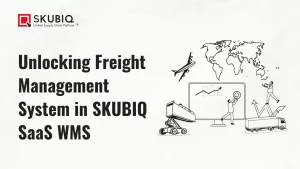Expanding your ecommerce business internationally? Welcome to the world of International Ecommerce! But wait, how do you navigate through the complexities of selling across borders seamlessly? That’s where Warehouse Management Systems (WMS) come into play, making your journey smoother than ever.
Understanding International Ecommerce
So, you’ve got your eye on the global market. But what exactly is International Ecommerce? It’s like taking your local shop and opening it up to the world, reaching customers far and wide. But with this vast opportunity comes the need for strategic planning and execution.
Importance of Ecommerce Strategy
You wouldn’t set sail without a map, would you? Similarly, in the world of International Ecommerce, having a solid ecommerce strategy is your roadmap to success. It’s not just about selling products; it’s about understanding your target audience, market trends, and competition to stay ahead of the game.
Getting Acquainted with WMS
Now, let’s talk about Warehouse Management Systems (WMS). Think of it as the brain behind the operation, orchestrating everything from inventory management to order fulfillment with precision. With WMS, you can kiss goodbye to the chaos and embrace efficiency in your ecommerce logistics.
Streamlining Ecommerce Logistics
Speaking of ecommerce logistics, let’s dive deeper. WMS plays a crucial role in streamlining these operations, ensuring that your products reach your customers’ doorstep on time, every time. From inventory optimization to shipping processes, WMS takes care of it all, so you can focus on growing your business.
Enhancing Customer Relationships
Ever wondered how to keep your customers coming back for more? It’s all about building lasting relationships. With WMS, you can provide your customers with a seamless shopping experience, from placing an order to receiving it promptly. Happy customers mean repeat business and positive word-of-mouth.
Real-Time Data Analytics
In today’s fast-paced world, data is king. WMS provides you with real-time data analytics, giving you valuable insights into your ecommerce business operations. From inventory levels to order statuses, you’ll have a finger on the pulse of your business, enabling you to make informed decisions on the fly.
Ensuring Supply Chain Efficiency
Efficiency is the name of the game in International Ecommerce. With WMS, you can ensure Supply Chain Efficiency by minimizing errors, reducing costs, and optimizing processes. From sourcing products to delivering them to your customers, WMS helps you streamline every step of the supply chain.
Fostering Client Retention
What’s better than acquiring new customers? Keeping the ones you already have. WMS plays a crucial role in Client Retention by ensuring timely order fulfillment, accurate deliveries, and exceptional customer service. Happy customers are loyal customers, and loyal customers are the lifeblood of your business.
Challenges in Implementation
While implementing WMS may seem like a daunting task, it’s not without its challenges. From integration complexities to data migration issues, there are hurdles to overcome. However, with careful planning, strategic execution, and the right support, you can navigate through these challenges and emerge victorious.
FAQs: Frequently Asked Questions
1. What is International Ecommerce, and why is it important?
International Ecommerce refers to the buying and selling of goods and services across international borders through online platforms. It’s essential for businesses looking to expand their reach and tap into new markets.
2. How does WMS contribute to Supply Chain Efficiency?
WMS optimizes inventory management, order fulfillment, and shipping processes, minimizing errors and reducing costs, ultimately leading to improved Supply Chain Efficiency.
3. Can WMS help improve Customer Relationship Management?
Absolutely! WMS provides real-time data analytics, enabling businesses to gain insights into customer behavior and preferences, thus allowing for personalized marketing strategies and enhanced customer relationships.
4. What are some common challenges in implementing WMS?
Integration complexities, data migration issues, and resistance to change are some common challenges businesses may face when implementing WMS. However, with proper planning and support, these challenges can be overcome.
5. How does WMS contribute to Client Retention?
By ensuring timely order fulfillment, accurate deliveries, and exceptional customer service, WMS helps businesses foster trust and loyalty among their customers, ultimately leading to higher client retention rates.
In conclusion, International Ecommerce in WMS opens up a world of opportunities for businesses to expand their reach and grow their bottom line. By understanding the importance of ecommerce strategy, leveraging the power of WMS, and fostering strong customer relationships, businesses can thrive in the global marketplace.



